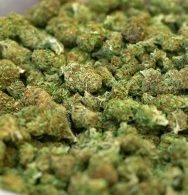Denver is the granddaddy of Colorado’s marijuana industry, and it shows in the roughly $180 million in taxes and fees the city will end up collecting in the first five years of recreational sales.
But if that sounds like a lot, it hasn’t been revolutionary for a city government that runs on a nearly $2.2 billion-a-year operating budget. Until 2018, the city took a conservative approach, mostly resisting the urge to dedicate the proceeds from special marijuana taxes to anything except regulatory, enforcement and public education efforts (budgeted at $8.8 million this year).
Now the floodgates are open.
The city unleashed more than $12 million in spending of excess marijuana taxes in its 2018 budget for priorities that included road repaving, park improvements, opioid abuse intervention programs and affordable housing. For 2019, the city has planned additional spending on capital projects and the opioid strategy.
Its leaders also approved an increase in the special tax on recreational sales, from 3.5 percent to 5.5 percent, that will turbocharge the city’s affordable housing initiative by raising an extra $9 million a year.

Grow tech Auxerre Adore waters cannabis plants in the vegetative chamber at MedPharm Research warehouse in Denver.
That move gained industry backing — and long had been sought by some City Council members.
“I’ve only thought the revenue should be used for a social good — like affordable housing or homelessness,” said Kendra Black, who chairs a council committee focused on marijuana issues. “Something where the residents of Denver can see that this sin tax is going to fund a community good.”
Mayor Michael Hancock’s approach has been more expansive than Black advocates, but he has argued against dedicating the special-tax revenue to recurring expenses, aside from the new affordable housing set-aside.
The robust industry in Denver counts 216 storefronts that sell recreational product, medical cannabis or both, and it has more than 200 cultivation facilities. Denver dispensaries accounted for about 39 percent of Colorado’s marijuana sales in 2017.

Sweet Grass Kitchen employee Dakota Hatch takes a batch of pot brownies out of the laser machine at Sweet Grass Kitchen in Denver. The laser marks the top of each brownie with a THC mark for safety.
Based on the city’s annual marijuana report and figures through October, its projected take from all recreational and medical sales in 2018 is roughly $47 million. That includes not only $21 million from the special tax on recreational sales and a city share-back from the state’s own special tax, but also regular sales taxes and licensing fees — which are absorbed into the general fund each year for spending on city services.
All told, the pot revenue accounted for slightly more than 2 percent of the operating budget.
Document: Denver’s 2019 budgeted spending of special marijuana taxes










